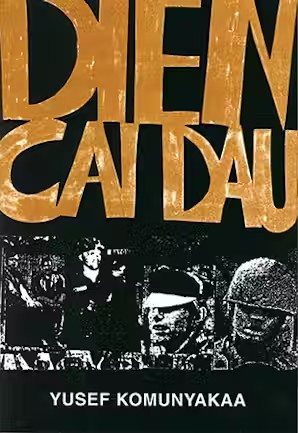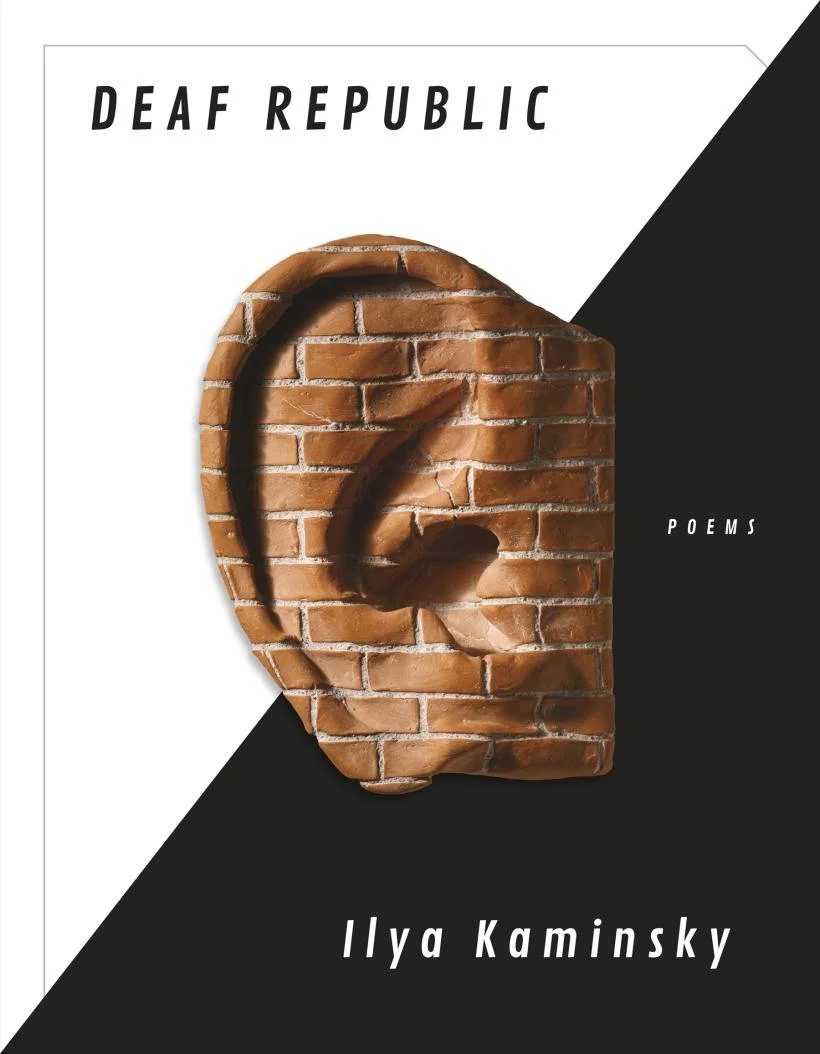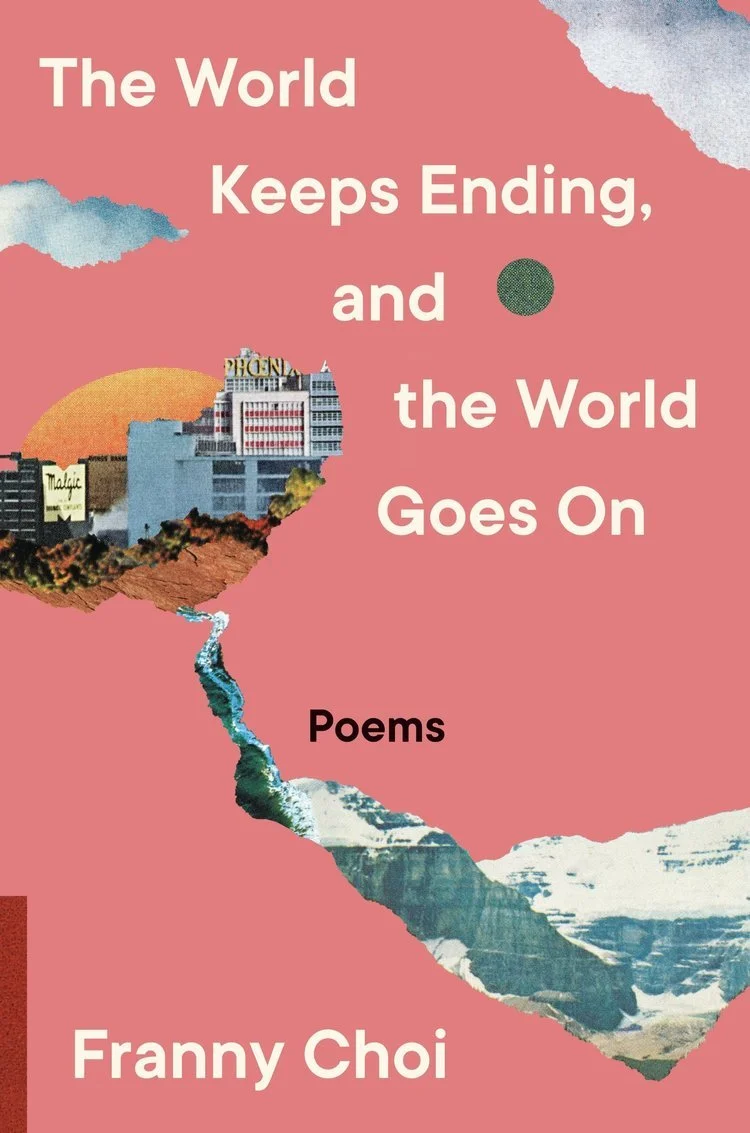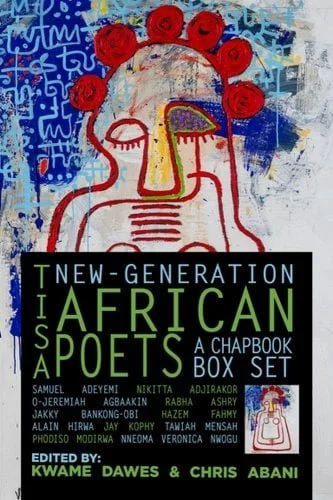6 Poetry Collections to Stave Off Numbness Amidst Unprecedented Global Violence
Humanity in poetry in a time of violence.
by Andreea Ceplinschi
According to the Peace Research Institute in Oslo, we’re living the highest number of armed conflicts since 1946. In between Crisis Watch, the Global Conflict Tracker from the Council on Foreign Relations, and Amnesty International, that number may range from 59 to 120, 122.6 million people worldwide forcibly displaced as of June 2024, that is 1 in 67 people on this earth, according to the UNHCR, Ukraine recording over 37,303 fatalities in the past year, Palestine now highest in deadliness and danger to civilians with 39,787 people reportedly killed since July 2023. Numbers and statistics make war reality easier to digest in the safe community bubbles where we dissociate from the news and can allow “genocide” to become just a word.
For me, this is where poetry steps in to rehumanize the narrative and keeps me from going numb. The following poetry collections spotlight the vulnerable elements of war by offering up perspectives of both victims and assailants, diving to the core of patriarchal violence and its generational aspects, exploring power as the root of violence, or simply being a record of the repetitive nature of human conflict since Biblical times - “The Lord is a man of war.” (Exodus 15:3)
Dien Cai Dau by Yusef Komunyakaa
It’s impossible to read this collection and look past its importance as a poetic historical record of the Vietnam war, no doubt a quality due to Komunyakaa’s background in journalism. The tone of the poems is precisely that of record-keeping, descriptive, introspective, yet with clear narrative threads. The speaker of these poems bears witness and it’s the starkness of the language that highlights the horror of what he’s witnessing: “You and I Are Disappearing.” Throughout these poems, there’s a noticeable tension between the men as military actors and men as humans. The poems neither glorify the war, nor do they make excuses, they’re just a field journal of wartime violence, serving as a reminder that ongoing armed conflict has the ability to dehumanize both victims and perpetrators.
Forest of Noise by Mosab Abu Toha
While Komunyakaa’s record-keeping poems came from the side of the assailant, Forest of Noise is a record of Gaza civilian victim perspectives. The collection employs the same matter-of-fact tone as Dien Cai Dau, it doesn’t set out to be emotionally devastating. It becomes devastating, when poem after poem, the losses recorded and the resignation into hopelessness become overwhelming. The poems are littered with violence and displacement, mothers trying to mother, bombs lighting up the night sky, shrapnel, rubble, body parts. The feeling in these poems is grown so big it no longer has a name. It’s not fear, it’s not despair, and it’s not anger. But it’s undeniably present and almost desperate to make itself understood:
At my first history class,
the only students attending
are the future, the present, and the past.
But when I step in, the future gets ready to leave,
while the past is handcuffing the present,
slicing its hamstrings,
and dyeing its clothes gray.
Deaf Republic by Ilya Kaminsky
This is one of my all-time favorite books of poetry because it is filled with revolutionary hope, taking the idea of vulnerability and turning it into the foundation for dissent. The poems in this collection are a progression telling the story of the Vasenka townspeople who grow deliberately deaf and create their own sign language after soldiers kill a young boy while dispersing a protest. The book is all one story, yet each poem can also stand on its own. In that sense, the collection itself becomes a metaphor about individuality and community, using the crisis environment as the unifying factor for community. And as much as I love the idea of revolution this collection puts forth, what I love about it even more is that in the end, it stays true to who we are and how we function as humans, it casts a “shame on us” light on our desperate desire to ignore and forget history and sink back into comfort – In a Time of Peace.
City of Skyscrapers by Marcela Sulak
With Sulak’s work, readers are offered the crucial perspective of the civilian living on the land of the aggressor. The emotions range from tenderness to despair, the permeating feeling throughout being that of powerlessness. Published in 2021, many of these poems reference armed incidents between Israel and Palestine happening years prior to the most recent attacks, but their relevance and timeliness only serve to reveal humanity’s bloodlust over and over and histories of violence repeating themselves while civilians are forced to adjust and live amidst armed violence with whatever sense of normalcy they can muster. This despair of practicing faked normalcy is amplified by Sulak being a mother and her desire to shelter her daughter. The poems are as much in conversation with God at they are with real life people; Skyping into Gaza is an exchange between Sulak and Mosab Abu Toha, ending with
But people live in bodies, and bodies live in homes,
and homes are placed in cities, and cities once
had walls, now countries do, and bodies
have skin, and words have wings, and names
are everywhere, and when they leave
they leave gaps.
The World Keeps Ending and the World Goes On by Franny Choi
This collection beautifully sums up what I’m trying to say by putting this list together: that conflict isn’t new, we live in a world steeped in it. And that we can always find ways to survive it, “We live – have to live somewhere.” Choi’s poems echo some of Sulak’s ideas around mothers being mothers even in the midst of violent chaos because there’s no other choice. But Choi’s collection dives even deeper into the female condition and its vulnerability in times of war. With lyricism and tenderness, Choi lays out the brutality of war trauma stored in the female body and passed down for generations. From dystopian tension to the real-life social divides seeded by the perception of power, there’s a unifying thread of hope born out of acknowledging the futility of our struggles. A favorite from this collection – Things that Already Go Past Borders.
Sign of the Ram by O-Jeremiah Agbaakin
Part of Tisa: New-Generation African Poets: A Chapbook Box Set, curated by Chris Abani and Kwame Dawes, Agbaakin’s collection explores the expression of masculine power as violence under the guise of righteousness. The poems largely deal with a speaker-father dynamic, but filtered through the biblical lens of Abraham and Isaac in a way that exposes the hypocrisy of power as divine mandate. God provides the ram to be sacrificed in the form of the most vulnerable, a violence justified because God asks for it to happen. Anytime I wonder how the military psyche survives active duty, I remind myself that following orders is a moral code of biblical age, obedience to the higher power overriding guilt. As Agbaakin points out in Father’s Apology:
“i am not cruel. only obedient. you must know that
the steel shrieks as it leaves its sheath. you must know that
i suffer my inner angel to hold my hand as i hold your neck.”
Andreea Ceplinschi is a Romanian immigrant writer, graphic designer, photographer, waitress, and kitchen witch living and working at the tip of Cape Cod. Her writing includes poetry, fiction, and creative non-fiction, published in Solstice Literary Magazine, 86logic, One Art, Wild Roof Journal, The Quarter(ly), The Keeping Room, Bulb Culture Collective, Club Plum Literary Journal, and elsewhere.








